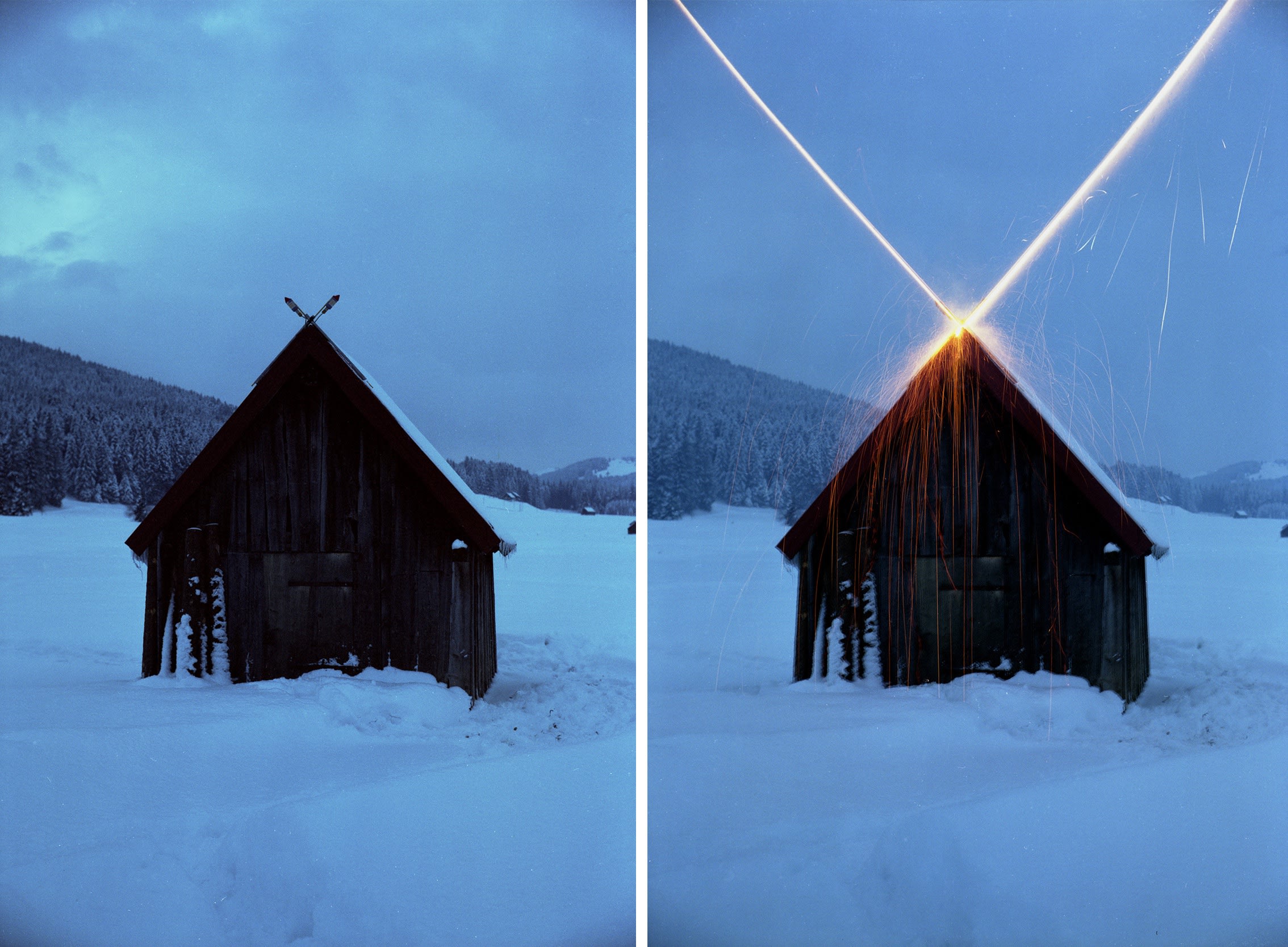It was then that Gigaemi started reading the work of Carlos Castaneda, whose first book, The Teachings of Don Juan: A Yaqui Way of Knowledge, was published in 1968. In this and several books to follow, the Peruvian author- initially a graduate student in anthropology-tells of his journey, led by the shaman Don Juan, toward becoming a "man of knowledge" through visions gained via peyote and other power plants and the alternative realities he experienced. The books became wildly popular as well as controversial. For Gigaemi, they opened a door into seeing the world as multi-dimensional, unbounded by prevailing Western concepts of time and inseparable
from what he calls physics: the principle that everything is comprised of molecules and atoms, always in motion, always travelling, always living.
He recognized how traditional Kwakwaka'wakw ways of knowing hold similar truths. "Uncle Sam Cedar was talking about this, too," he reflects, "so, I thought it must be true. He could barely read or write in English, but he was fluent in Kwak'wala. He said to me, 'Son, I could tell you our origin story but you won't understand it, because you don't understand our language.' Oh, that made me feel bad... Our old people, they knew what was also known in other places: that there's the next world and many worlds beyond that, and there's the ones behind us. That's what our ceremonial dance screen is for-to go in and out of those worlds."
Uniqueness and innovation lie within Kukwits' gesture and palette. His paintings push beyond the traditional Northwest Coast formline. Bold, coastal design elements conventionally rendered and contained within carved works are here transformed into painterly movement via Kukwits' sweeping brushstroke. This fluidity is emphasized by his vibrant colour schemes and the syncopation of both warm and cool tones. While some formal elements of abstraction and modernism are evoked in Kukwits' painting, there is also an underlying fascination with language. In the recurrence of patterns and motifs, Kukwits' is interested in the syntax of visual signifiers (glyphs) and how meaning communicates beyond the verbal. Much of his practice forms part of a broader exploration of a vocabulary focused on gesture and form rather than direct language.
In dialogue with the Kukwits paintings are a series of Pookmis masks by Larocque. A supernatural being, a sea spirit in human form, Pookmis is often depicted in a ghostly white with large round eyes, gills, and protruding lips. The influence of his mentor Chief Beau Dick is clearly evident. A singular Moon Mask is also presented, casting light and colour on the congregation of white Pookmis masks.Gigaemi Kukwits lives and works in Vancouver, BC and is of Coast Salish (Squamish Nations) and Kwakwaka'wakw heritage. His chiefly name was appointed in a cedar bark ceremony by his uncle Simon Baker and derives from his grandparents of the Musgamakw Dzawada'Enuxw First Nations. At a young age, Kukwits' trained under artists Douglas Cranmer, Mungo Martin and Mathias Joe. He briefly attended and studied at the Vancouver school of Art (Emily Carr University of Art + Design) in 1967.
Corey Larocque's lineage dates to the original Seven Sisters of the Tongas Island Haida on his mother's side, and to the Gitxsan Bear clan on his father's. Larocque began making art at a very young age, copying line form from his grandfather's bentwood boxes. In his late 20s, Larocque was mentored by celebrated artist Beau Dick and inspired by the works of Russell Smith, Wayne Alfred, and Marcus Alfred. Today, Corey's foundation in the native art form stems from his use of raw materials including cedar, alder, yew and working in metalsmithing with silver, copper, gold with engraving and repousse. Central to Larocque's world is the Potlatch; the traditional ceremony where spiritual regalia is considered the highest expression of North West Coast native art. In the 2015 potlatch, Corey received the named Noka Tsi from Chief Marcus Alfred, meaning "big heart".

